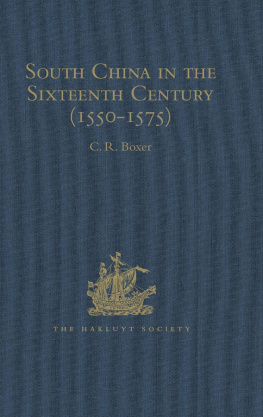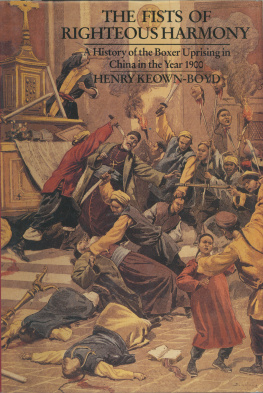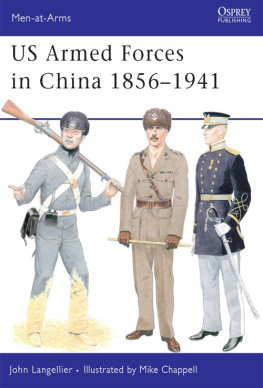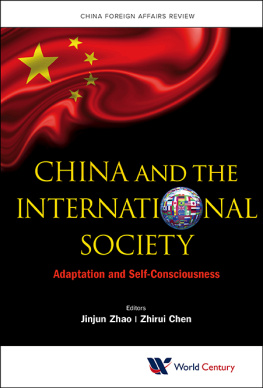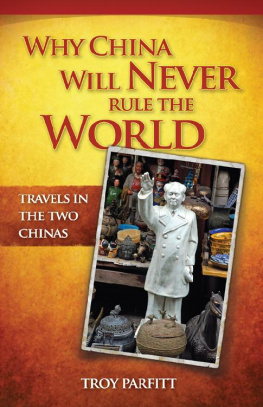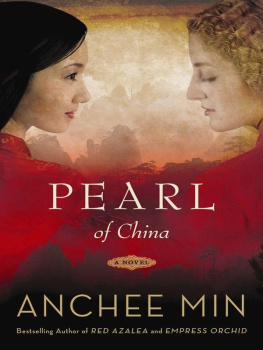Silbey - The Boxer Rebellion and the great game in China
Here you can read online Silbey - The Boxer Rebellion and the great game in China full text of the book (entire story) in english for free. Download pdf and epub, get meaning, cover and reviews about this ebook. City: China, China., year: 2012, publisher: Hill and Wang, genre: History. Description of the work, (preface) as well as reviews are available. Best literature library LitArk.com created for fans of good reading and offers a wide selection of genres:
Romance novel
Science fiction
Adventure
Detective
Science
History
Home and family
Prose
Art
Politics
Computer
Non-fiction
Religion
Business
Children
Humor
Choose a favorite category and find really read worthwhile books. Enjoy immersion in the world of imagination, feel the emotions of the characters or learn something new for yourself, make an fascinating discovery.

The Boxer Rebellion and the great game in China: summary, description and annotation
We offer to read an annotation, description, summary or preface (depends on what the author of the book "The Boxer Rebellion and the great game in China" wrote himself). If you haven't found the necessary information about the book — write in the comments, we will try to find it.
Silbey: author's other books
Who wrote The Boxer Rebellion and the great game in China? Find out the surname, the name of the author of the book and a list of all author's works by series.
The Boxer Rebellion and the great game in China — read online for free the complete book (whole text) full work
Below is the text of the book, divided by pages. System saving the place of the last page read, allows you to conveniently read the book "The Boxer Rebellion and the great game in China" online for free, without having to search again every time where you left off. Put a bookmark, and you can go to the page where you finished reading at any time.
Font size:
Interval:
Bookmark:

FOR MARI
In early summer 1900, Roger Keyes went for a walk. He was a lieutenant commander of the Royal Navy and, by grace of Queen Victoria and God, the captain of Her Majestys ship Fame . He was in China, around the globe from his home country, and it was a beautifully warm day. There seemed little reason why he, and thirty-two of his sailors, might not go for a stroll along the riverfront near Dagu.
If, Keyes thought, he and his heavily armed men happened upon the Chinese arsenal that he had earlier discovered, well, it would be simple good luck. There was no way that his admiral, James A. T. Bruce, could criticize him for such an encounter. After all, he was, as the admiral had ordered, keeping his ship well back from danger. He had carefully moored it just over a mile away, exactly Bruces prescription. He and the admirals post-captain, George Warrender of the HMS Barfleur , had scouted the arsenal the previous day. Keyes had been cautious with the post-captain to make sure that Warrender should not see the fort itself, as it looked unpleasantly formidable with its modern 6-inch guns. Keyes kept that to himself, and Warrender approved the suggestion that Keyes come back by himself to reconnoiter further the next day.
The arsenal controlled the river between Dagu and Tianjin, a supply line absolutely critical to the British and the multitude of other nations whose ships currently sat in the Bohai Sea, off the China coastline. That fleet had just successfully captured the forts protecting the Dagu River mouth, and now it was the only thing preventing them from reestablishing contact with the besieged foreign enclaves inland at Tianjin, saving a mixed Western force that had gotten hopelessly bogged down north of that city, and ultimately relieving the Western legations in Beijing itself, under attack by not only the army of the throne of China but also the countless numbers of a mystical Chinese sect called the Boxers.
So, Roger Keyes went for a walk. He headed directly toward the arsenal that had tormented him for days. Local Chinese had insisted that it was unoccupied, and Keyes, whatever he confessed to Warrender or Bruce or later in his memoirs, intended to try to take it. It was a breathtaking bit of audacity from the twenty-seven-year-old lieutenant commander. Even more breathtaking, it worked.
As Keyes and his men approached, there was no reaction from the fort, and no one seemed to be occupying the walls. Even better, the front gate stood open. Keyes led his men at a trot through the gate and discovered that the fort had been abandoned. Suddenly, much to the young officers surprise, he found himself the owner of one slightly used Chinese fortress. Two things confounded him at that moment. First, he did not have enough men to hold the fort, and leaving it to gather more risked giving the Chinese time to reoccupy. Second, and worse, was how to explain to the admiral that his innocent walk had turned into a full-scale assault.
Keyes was undaunted. If the British could not have the fort, then neither could the Chinese. He quickly set his men to spiking the guns they found, and he himself put together a fuse leading into the magazine of the arsenal, heavy with gunpowder and shot. Guns crippled, he sent his men out and then lit the fuse, leaving the fort at a dead sprint to beat the explosion. That explosion was, Keyes would write later, very severe. This was something of an understatement, as the sound of the blast reached to the fleet sitting offshore and sent a black plume of smoke into the sky that could be seen for miles.
Getting back to the Fame , Keyes wrote his report to Admiral Bruce. Acting in accordance with your orderto reconnoiter, and if possible destroy all munitions of war in the Hsin Chieng fort, Keyes started, and then explained the days events.
And he was right, for Keyes had opened up the route to Tianjin and beyond. It was the kind of imperial buccaneering that marked the entire summer of 1900, representatives of the various empires taking it upon themselves to act aggressively and on their own initiative. Empire creating itself on the scene, and to the surprise of the mother country. This book is the story of that larger conflict of 1900, one in which the government and people of China took on the assembled forces of the worlds empires, young and old. The war was called different names: the Boxer Revolution, by many in the West; the Boxer Uprising, by Mao Zedong; or the Third China War, by the British. Whatever its name, it was a global event, a war of ancient powers and a war of modern ones, a war of people and a war of governments, a war of religion and a war of conquest. It was the last war of an ancient Chinese dynasty and, in fact, the last war of any Chinese dynasty. It was a familiar kind of war to the British and an unfamiliar type to the Americans. It was an important war then, and an important war for any time marked by distant conflicts in places with unfamiliar names.
1900
The year 1900 was both beginning and end. It was the end of the nineteenth century and the beginning of the twentieth. It was a year, it seemed to many Americans and Europeans, for looking to the continued march of progress. The Western world had become modern, scientific, and governed by rationality, a smoothly running machine, oiled gears meshing easily to propel it ever forward and upward. Progress was a watchword, not so much sought as assumed.
The truth was not that simple. Chaos was not uncommon in the world of 1900. The final year of the nineteenth century was witness to the rumblings of the tidal shifts that would flood the world and remake it. The old empiresBritain, France, Russia, Austria-Hungarywatched the certainties that had carried them to dominance erode away. The new empiresthe United States, Germany, and Japanfought to gain their rightful places at the imperial table. Even within those empires, conquered peoples were showing a worrying disposition not to remain conquered. In German East Africa, the Germans were fighting a genocidal war against the Hehe. In South Africa, the British were losing a war against the Boers. In the Philippines, the United States was struggling to suppress a Filipino insurgency.
Worse, people at home in these countries were also proving uncooperative. Russia was struggling with a widespread anarchists movement, a movement that successfully assassinated Czar Alexander II back in 1881. In Britain, waves of industrial unrest unsettled society, and the slow fading of Queen Victoria signaled the end of an era. The United States was still emerging from the aftershocks of the worst depression in its history, which started in 1893 and lasted most of the decade, and struggled with its own unrest, unrest that saw the assassination of three presidents in thirty-six years. In Germany, the passing from the political scene of Otto von Bismarck, the unifier of Germany, created confusion both within Germany and without. The new kaiser, Wilhelm II, built an imperial navy to rival the British, who were not pleased. In France, the Dreyfus affair still split the nation between those who supported the young captain of artillery and those who believed him a spy.
In the Far East, China slipped into chaos in the summer of 1900. Tens of thousands of adherents of a rebellious cult marched on Beijing. The Boxers, as they were dismissively known by the members of the Western embassies in the capital city, wore red sashes and practiced devotions that combined spiritual and physical elements. They believed themselves impervious to physical harm, up to and including bullets. As they moved from town to town, they set up training fields in the public squares and put on recruiting exhibitions for the locals. They usually succeeded in getting a significant number to join, most particularly the young and disaffected. Everywhere they went, they preached ardently against the West, whether it be the Christian missionaries everywhere in China, the Chinese Christian converts, or the Western businessmen who had bankrupted entire sectors of the Chinese economy. They were all foreign, and all enemies.
Font size:
Interval:
Bookmark:
Similar books «The Boxer Rebellion and the great game in China»
Look at similar books to The Boxer Rebellion and the great game in China. We have selected literature similar in name and meaning in the hope of providing readers with more options to find new, interesting, not yet read works.
Discussion, reviews of the book The Boxer Rebellion and the great game in China and just readers' own opinions. Leave your comments, write what you think about the work, its meaning or the main characters. Specify what exactly you liked and what you didn't like, and why you think so.


